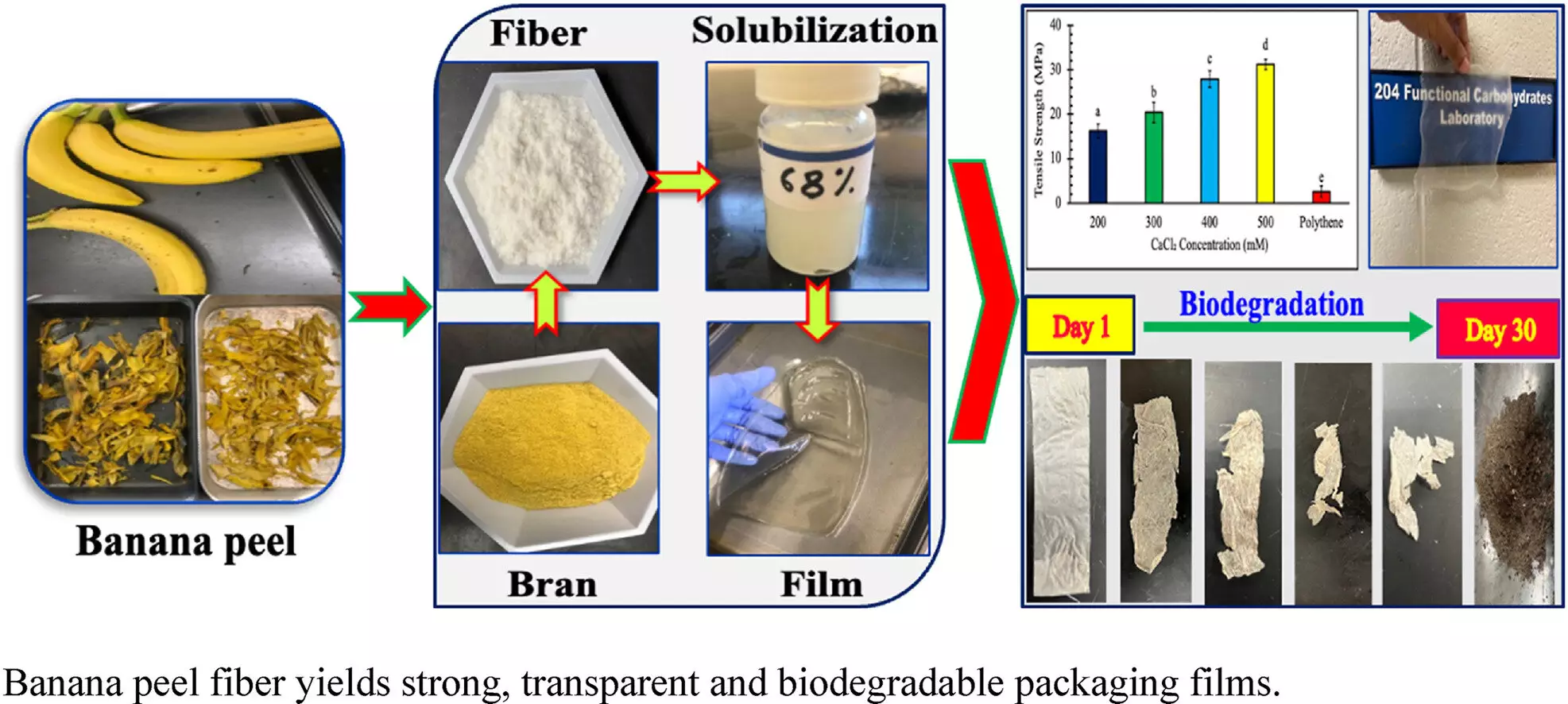In a world where plastic pollution is a major concern, researchers are constantly looking for innovative solutions to reduce the environmental impact of plastic packaging. One such solution comes in the form of banana peels. Srinivas Janaswamy, an associate professor of food chemistry at South Dakota State University, has been exploring the use of banana peels to create biodegradable packaging films that could potentially replace traditional petroleum-based plastics.
Janaswamy’s research focuses on repurposing agricultural byproducts, such as banana peels, to develop biodegradable films that decompose in the environment. Unlike conventional plastics, which can take up to 20 years to decompose, these banana peel-based films offer a more sustainable alternative. With millions of tons of banana peels going to waste each year, harnessing this abundant resource could have a significant impact on reducing plastic pollution.
Banana peels are a promising material for biodegradable packaging due to their abundance and robust structure. With banana plantations producing vast amounts of residue, there is a significant opportunity to utilize this byproduct for sustainable packaging solutions. The lignocellulosic material found in banana peels offers biodegradability, low density, and non-toxicity, making it an ideal candidate for bioplastic production.
As the demand for plastic packaging continues to grow, there is an urgent need for environmentally friendly alternatives. Banana peels could pave the way for a more sustainable future by providing a biodegradable option for food packaging. Janaswamy’s research demonstrates that banana peel films exhibit desirable properties, such as strength and transparency, making them a viable material for packaging applications.
While the potential of banana peels in sustainable packaging is promising, further research is needed to enhance the flexibility and scalability of the production process. Janaswamy’s study lays the groundwork for future advancements in utilizing fruit processing byproducts for plastic-replacing biodegradable films. As the food industry continues to seek eco-friendly packaging solutions, banana peels offer a sustainable alternative to traditional plastics.
The use of banana peels in creating biodegradable packaging films represents a significant step towards reducing plastic waste and promoting environmental sustainability. By harnessing the abundant resources provided by nature, researchers like Janaswamy are paving the way for a greener and more sustainable future for the food packaging industry. As consumer demand for eco-friendly products continues to rise, innovative solutions like banana peel-based packaging offer a promising path towards a plastic-free world.


Leave a Reply